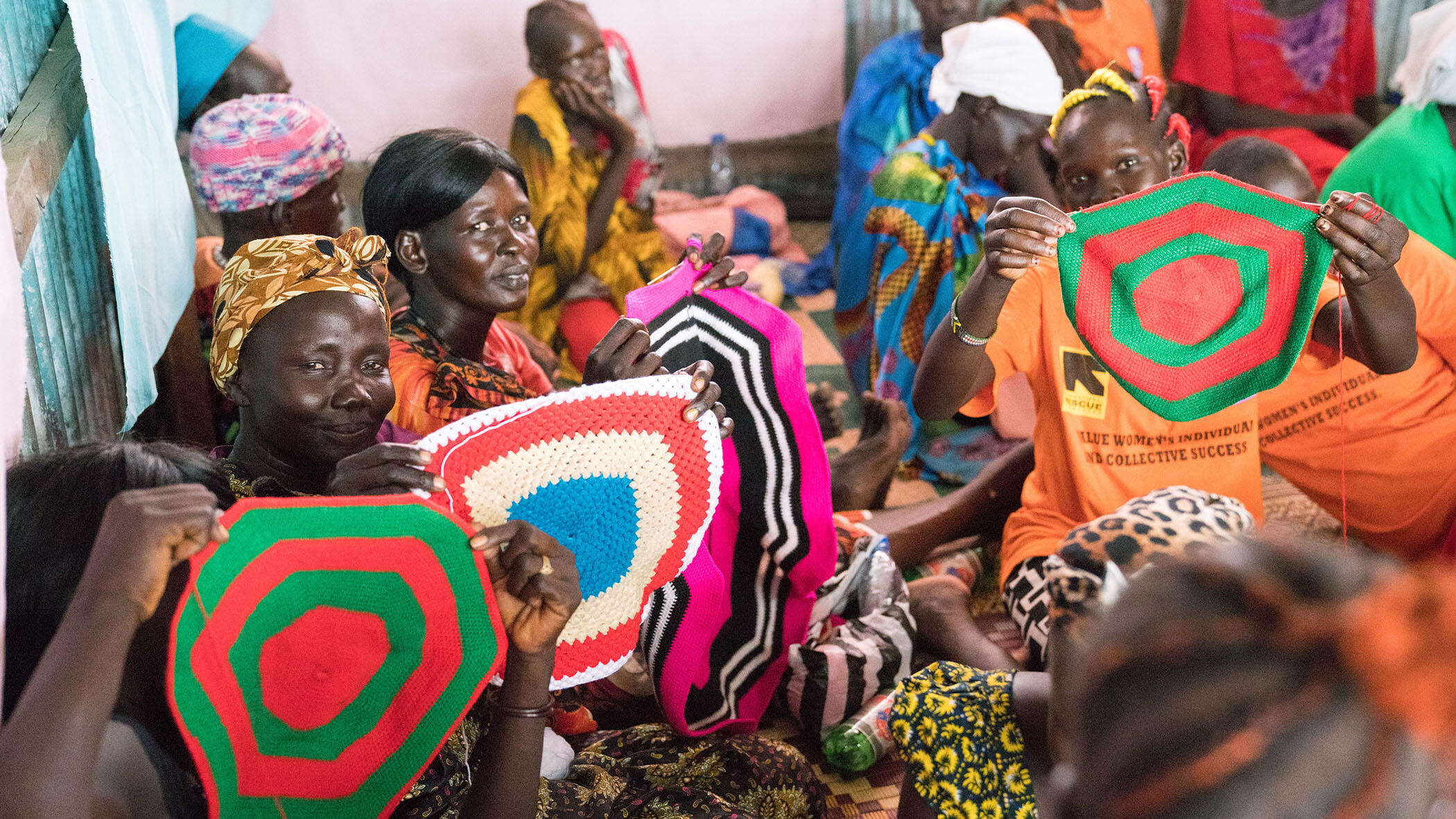Kapoeta East, South Sudan – Beaten and thrown out of their house by her partner and having nothing for her own daily survival, 39-year-old Regina had given up on life until she discovered a place where women with similar experiences supported each other and learned with each other.
After her first husband died, Regina fell in love with another man whom she thought she would have a “happy ever after” with. However, just shortly after they moved in together, the man turned out to be the person who will make her life miserable.
Throughout the seven years they were together, everyday seemed like torture, according to Regina.
“He would drink a lot and come home when he feels like it, most of the time at past midnight or the wee hours of the morning. If he doesn’t find food on the table that’s when the physical abuse starts,” she recalls. Despite the violence, Regina could not leave the man because he was providing for her and their three children.
One day, during a heated argument, the outraged man forced her out of their house.
It was during that lowest point her life when a team from Health Link South Sudan came to her community to conduct an information session about gender-based violence and to promote the Women and Girls-Friendly Space (WGFS).
The facility is one of the 10 safe spaces for women and girls supported by UNFPA in South Sudan through local partners like Health Link and SAADO. The WGFS offers case management for GBV survivors, group and individual psychosocial support services, livelihood skills training and referral of the GBV survivor to related services, if needed.
“They encouraged women and girls to come to the center because there are a lot of activities, including psychosocial support sessions where everyone who wants to share an experience can freely do so and expect to get the support from other women,” Regina says. “That day when they came, I had swollen eyes and bruises on my body because of the beating that’s why I feel like they actually came to help me. I felt really helpless and hopeless then.”
The next day, she went with a friend to the WGFS where she found other women and girls participating in different activities such as knitting, crocheting, beading. Regina also received her own set of bed sheet, needle ring and threads so she can start on embroidery.
“I feel very happy each time I go to the center, it is such a relief,” says Regina. “I can’t express enough the happiness that this experience has brought into my life.”
Supporting the creation of women and girls safe spaces is one of UNFPA’s key strategies for the protection and empowerment of women and girls affected by crises. These centers provide women and girls to socialize and re-build their social networks, receive social support, acquire contextually relevant skills, access safe and non-stigmatizing multi-sectorial GBV response services, and receive information on issues relating to women’s rights, health, and services.


